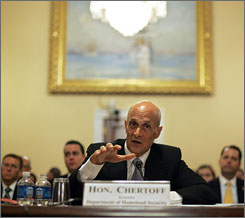Free Riders
Governments — local, state, and federal — spend a lot of time wringing their hands about the plight of the urban poor. It’s never hard to find some know-it-all with a suit and a nameplate on his desk who has come up with a government program that will eliminate, or ameliorate, or at least contain, the worst aspects of grinding poverty, especially as experienced by city folks, and especially as experienced by black people, brown people, immigrants, or other people marked for the special observation and solicitude of the State bureaucracy. Depending on the frame of mind, these programs may be more aimed at doling out conditional charity to
deserving
poor people, or they may be more aimed at bringing more at-risk
poor people under the surveillance of social workers and medical experts, or they may be more aimed at beating recalcitrant poor people up and locking them in cages. (Most programs involve a combination of at least two, and possibly all three.) But one thing that they will never, ever do is just get the fuck out of the way and let poor people do the sort of things that poor people have done from time out of mind to help themselves scratch by.
There are too many ways to list them all here. But one notable example is the way in which city governments constrain and control taxi cabs. In principle, anyone who needed to make some extra money could start a part-time cab service with a car they already have, a cell phone, and some word of mouth. That’s good money for honest labor providing a useful service to willing customers, all under the direction and control of a single independent worker, who can put as much or as little into it as she wants to in order to make the money she needs. And so what do the statesman in city governments do? They create tightly regulated, tightly restricted cartels on taxi service, impose arbitrary numerical limits and financial barriers to entering the cartel, and hit anyone they catch operating outside of the cartel with exorbitant fines or jail time.
One of the worst offenders is New York City, in which all taxi service are regulated by a central city commission, and the city enforces an arbitrary cap on the number of taxi cabs that can pick up passengers off the street. The licenses (medallions
) for serving willing customers without John Law punching your head are closely controlled by the city government; a handful of new ones are occasionally auctioned off by the city, and existing ones can be bought and sold by existing license holders — usually at a cost measured in the hundreds of thousands of dollars. Lots of poor people have a car laying around that they could use; not a lot have a few hundred thousand dollars.
Just in case those expenses and legal barriers to entry weren’t enough, I find that Mayor Bloomberg has decided that your taxi needs high-cost high-tech GPS and payment systems — whether or not you, as a driver, wants to lay out the time, money, and lost work to install and maintain it, and whether or not you, as a rider, want to pay the fares needed to cover the expense. Why would they need that? Well, hell, why not? Bloomberg knows what you need or want to pay for better than you do, anyway.
Right after Labor Day, a slew of New York City taxi drivers protested plans to roll out credit- and debit-card payment systems in the back seats of all 13,000 medallion cabs.
They feared they would lose money on tips if passengers didn’t pay in cash.
But proponents, including Mayor Michael Bloomberg, outnumbered the protesters.
Supporters say the ongoing program will better serve customers and actually help bring in more money for cabbies.
So, thanks to the supporters,
the cabbies will be treated like imbeciles who do not know how to conduct their own business, and also like conscripts who do not have any say in the conditions of their own labor. Well, in any case, somebody is sure to get a sweet deal:
It certainly will help bring in more revenue for San Jose, Calif.-based VeriFone Holdings (NYSE:PAY) PAY. The company is a leading maker of point-of-sale terminals and wireless systems.
VeriFone — in partnership with MasterCard’s MA PayPass — was the first firm approved to provide the wireless systems in New York’s cabs. The systems make use of an ATM-style interface to accept credit and debit fare payments.
The company’s back-seat screen monitors also deliver news, weather and tidbits on restaurants, night life, hotels and other attractions. An extra bonus: Like billboards, they bring in revenue-generating ad money.
Every year, we find a free ride on a new segment of the economy that is going electronic,said Doug Bergeron, VeriFone’s chief executive.
In this case, it is a free ride
indeed. Who needs to actually go out and sell a product when you can get government cartels to force clients to come to you?
I wish the independent cab drivers well. If Bloomberg shoves this corporate welfare screwjob through, I would encourage them all to go on a permanent strike from officially-licensed cab driving. New York City already boasts a vibrant and growing fleet of gypsy cabs, and an influx of new labor and resources into the counter-economy would be something to welcome.
(Link thanks to Austro-Athenian Empire 2007-09-07: Unto Him Who Hath.)
Further reading:
- Fair Use Blog 2007-09-03: The history of the Black Metropolis, the inner city, and the underground economy in Southside Chicago (from Sudhir Alladi Venkatesh, Off the Books)
- GT 2007-05-29: Bentham quote for the day
- GT 2007-05-15: Cocaine sí ¿c?@c3;b3;mo no?
- GT 2007-01-13: The tall poppies, part 2: food, drugs, and female sexual slavery in Afghanistan
- GT 2006-06-14: Enclosure comes to Los Angeles
- GT 2004-11-20: The tall poppies
- GT 2002-05-19: Government and the pink-collar ghetto
- GT 2001-09-03: Barriers to independent farmers

